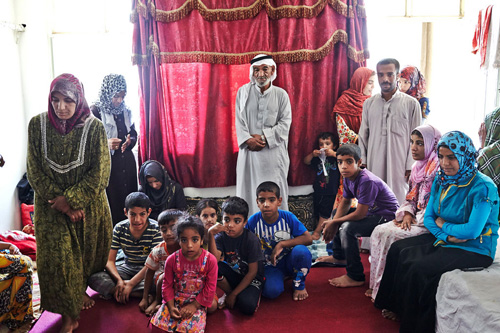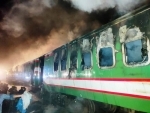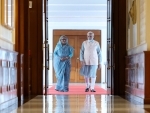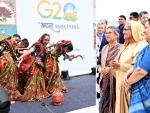World

Military effort to quell insurgency must be backed by political process, UN envoy says on Iraq
“We have consistently urged for the need for national dialogue, for unity, and, very importantly, for the full participation of the Sunni community in the political process, without whom that process will not be complete,” said Nickolay Mladenov, the Secretary-General’s Special Representative in Iraq as he briefed journalists in New York via video from Baghdad.
The elements of the crisis caused by the advances of the armed group Islamic State of Iraq and the Levant (ISIL/ISIS) and its allies must be addressed militarily, he said, explaining that the success of any military operation hinges on cooperation between Baghdad, the capital of Iraq, and Erbil, the seat of the autonomous Kurdish region.
The military plan must also be Iraqi-led and reflect a certain level of national agreement for consensus between the various communities, underscored Mladenov, who is also the head of the UN Assistance Mission for Iraq (UNAMI).
At least 900 civilians have been killed since 5 June, when ISIL/ISIS and its allies began their sweep across the country, and 650 have been wounded in fighting in Nineveh, Salah al-Din and Diyala, he said, citing updated figures. UNAMI and the UN human rights office (OHCHR) on Tuesday said that at least 757 civilians were killed in those cities and 599 were injured. Overall, at least 1,300 people were killed in Iraq, and another 1,250 injured in the two weeks.
The advance on Baghdad appears to be “stalled”, given the saturation of Iraqi army forces in the area, Mladenov said. “For anyone to attempt to take over Baghdad would be extremely difficult.”
However, a military solution alone “would not be possible,” he cautioned. The Sunni community has put forward a number of demands over the past couple of months that need to be addressed through a political process. There is a continuing impasse with the Kurdish Regional Government over budgetary issues, oil and gas revenue sharing, and other such matters that also need to be addressed quickly. In addition, a number of issues, particularly related to poverty among some communities in the Shiite parts of Iraq, also must be addressed.
This, as the country faces a political situation that Mladenov described as “murky”, with the first of July as the target date for the recently elected Parliament to begin forming a new government. The first step in that direction occurred last week, when the Iraqi federal court ratified the results of the 30 April parliamentary election.
“It is vital to stick to the Constitutional framework and the democratic political process,” Mladenov stressed to journalists on Wednesday. “UNAMI’s focus has been on keeping the political process in Iraq alive and revitalizing it with the pending meeting of the new parliament.”
Turning to the humanitarian crisis in the country, he said the situation continues to be “very dramatic”, with two million people internally displaced, including one million seeking refuge there as a result of the Syrian conflict and previous conflicts.
“The Government’s capacity to mount a response, both at the central level and the regional level, is completely stretched, and the UN has been called to assist on a number of occasions,” he noted.
Some UN staff have relocated to Erbil, where the bulk of refugees who fled Mosul three weeks ago are located, however humanitarian needs in other parts of the country are growing. Shelter, food, water, and health items continue to be very important in the displacement areas, but the general public is increasingly facing problems with supplies of electricity and water.
“We anticipate a funding envelope of over $300 million to meet the most critical needs,” Mladenov said, appealing to the international community to provide financial and other assistance on behalf of the UN family.
Speaking on behalf of UNAMI and the UN agencies in the country, Mladenov said as the environment becomes increasingly sectarian, the UN’s approach to dealing with the humanitarian conflict becomes very vital.
“Our assistance continues to be provided in an impartial manner to all,” he underlined.
Members of a displaced Iraqi family in a hotel in the city of Erbil where they found shelter after fleeing their home. Photo: UNHCR/S. Baldwin



